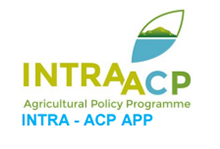ACP-EU PROGRAMMES: Hurricane PAM urges for better Agricultural policies responses to climate disasters
 Wageningen, The Netherlands/ 16 March 2015/ Intra-ACP APP: On 13 and 14 March 2015, Vanuatu – a small Pacific country – have faced one of its most devastating natural disasters on record. Tropical cyclone Pam, of category 5, traversed the island archipelago with sustained winds of 330KM/hr, torrential rains and storm surge that have caused cataclysmic losses.
Wageningen, The Netherlands/ 16 March 2015/ Intra-ACP APP: On 13 and 14 March 2015, Vanuatu – a small Pacific country – have faced one of its most devastating natural disasters on record. Tropical cyclone Pam, of category 5, traversed the island archipelago with sustained winds of 330KM/hr, torrential rains and storm surge that have caused cataclysmic losses.
According to Ambassador of Vanuatu to the European Union, H.E. Roy Mickey Joy, this tropical cyclone “has devastated 80% of Vanuatu on Friday the 13, 2015. It is indeed the most powerful destructive natural disaster ever experienced by this group of islands since cyclone Uma on the 7th of February 1987.”
As conditions for agriculture production in small island economies is endangered by climate change and natural disasters, small countries like Vanuatu are likely to pay a huge price to high intensity climate disasters.
A statement from Vanuatu Food Security and Agriculture Cluster indicates that “most islands have yet been unable to report, the damage is clearly widespread across all sectors, although agriculture is likely hardest hit, and the food security of Vanuatu will be compromised.”
An initial report states that “Cyclone Pam has caused unprecedented damage to this country’s subsistence agricultural sector area with banana crop throughout the country has been entirely destroyed, most coconuts have been felt, all island cabbage plants and other leafy vegetables have been destroyed, small livestock, including chickens and pigs have been killed, and pens and shelters destroyed, Fisheries infrastructure, including canoes, small boats, fishing gear have been destroyed.”
"These losses have been suffered by a great portion of the country’s most vulnerable families, up to 80% of Vanuatu’s population (~ 275,000 people) (see website for population: http://www.vnso.gov.vu/) engages in subsistence agriculture as a primary economic activity. Families will urgently require food support and the technical and material assistance for replanting.”
“Developing and strengthening regional agricultural development strategy, resilient to climate change is more than ever a global priority ” says Mr Michael Hailu, Director of The Technical Center for Agricultural and Rural Cooperation (CTA).
CTA with two others ARD regional institutions – the Secretariat of Pacific Communities (SPC) and Inter American Institute for Agriculture (IICA) – are coordinating a three components project which aims to contribute to enhance the regional (Caribbean and Pacific) and interregional capabilities of agricultural sectors in eradicating poverty, especially in the realm of climate change.
This project, the Intra-ACP Agricultural Policy Programme (APP) directly “addresses the climate change topic through improvements to the dissemination and adoption of climate change adapted agriculture and forestry production technologies.”
